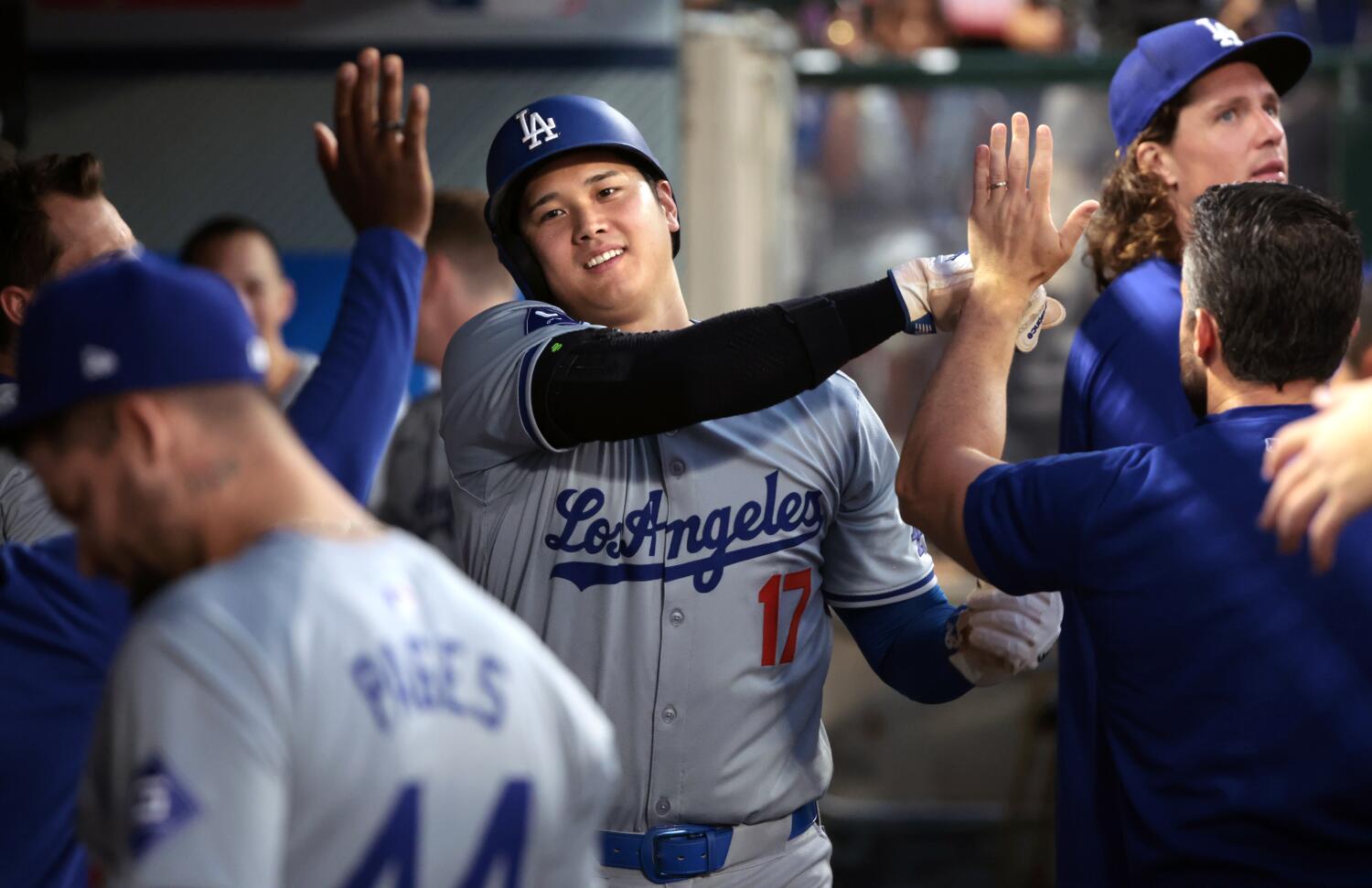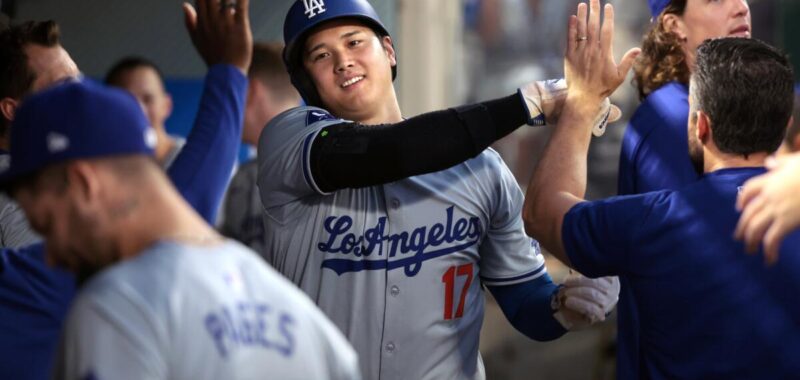
Ultimately, it doesn’t matter that Shohei Ohtani offered the Angels a chance to match the Dodgers’ offer or whether he would have re-signed with them if they had.
He ended up where he was supposed to be.
The point was driven home Tuesday when Ohtani made his return to Angel Stadium. Exactly one year after he played his final game for the Angels, Ohtani stepped into the batter’s box at his former stadium for the first time as a visiting player.
He didn’t receive a deafening ovation. He wasn’t targeted with furious boos.
Instead, he was welcomed by a half-empty stadium.
The Angels always underwhelm, and this was the latest example. Some “M-V-P!” chants started down the right-field line as Ohtani prepared to take the first pitch from Angels starter Reid Detmers, but they came from fans in Dodgers jerseys who invaded this baseball wasteland.
“To be able to play in front of the fans of Anaheim was the most important thing,” Ohtani said in Japanese. “I have only gratitude.”
Ohtani’s heart was in the right place, but in reality, the Dodgers played in front of just as many of their own fans as they did the last-place Angels’. The stadium gradually filled up over the first couple of innings, but even then, about half of the crowd was in blue.
Ohtani wanted to come back to this?
Before Ohtani signed his 10-year, $700-million contract with the Dodgers, his camp circled back to Angels owner Arte Moreno to give him a chance to match their offer. Moreno declined.
Speaking to reporters the day before the start of this two-game series in Anaheim, Ohtani wouldn’t say he would have returned with the Angels had they agreed to the terms of the heavily-deferred deal he signed with the Dodgers. He didn’t say he wouldn’t have either.
Ohtani is extremely guarded, and this was again the case here, but there were subtle indications that he was bothered by the Angels’ lack of interest in retaining him.
He said he was looking forward to playing in Angel Stadium and playing in front of Angels fans but said nothing about the organization. He said that rather than think about what the Angels did or didn’t do, he was “grateful for the teams that evaluated me highly.” Did that mean he thought the Angels didn’t hold him in the same regard?
For argument’s sake, say that Ohtani wanted to re-sign the Angels. What does that mean? Nothing. The player doesn’t always know best.
Rewind three years. When Ohtani was informed by Angels manager Joe Maddon and general manager Perry Minasian that he would hit every game, Ohtani initially thought they were trying to push him to give up pitching. Ohtani didn’t know it at the time, but they were doing him a favor. The directive transformed his career, as he went on to win two most valuable player awards over the next three seasons. He learned he was capable of doing more than even he thought was possible.
Moreno might have done Ohtani a similar favor over the winter.
Something important to remember about why Ohtani suggested to the Dodgers and other teams they pay him only $2 million annually and defer the remainder of his $70-million salary: He wanted them to use the money they saved to sign other talented players.
Moreno wasn’t about to do that, not with Mike Trout on the books for another seven years and Anthony Rendon for another three.
The Dodgers spent. They traded for Tyler Glasnow and signed him to an extension. They signed Yoshinobu Yamamoto. They signed Teoscar Hernández. They didn’t necessarily invest their savings wisely, but they did what Ohtani wanted them to do. They made an effort to improve their roster.
Their 10-inning, 6-2 victory was the first meaningful September game Ohtani ever played at Angel Stadium. The Dodgers have the best record in the National League and a 5½-game lead in their division over the second-place San Diego Padres. Ohtani is about to reach the postseason for the first time in the major leagues.
“Up to this point,” Ohtani said, “I’ve never been in such a good position in September.”
Baseball is entertainment, and Ohtani is entertaining more people, thanks to the greater reach of the Dodgers. Their reach is expansive enough to the point that they transformed his homecoming game into a home game.

